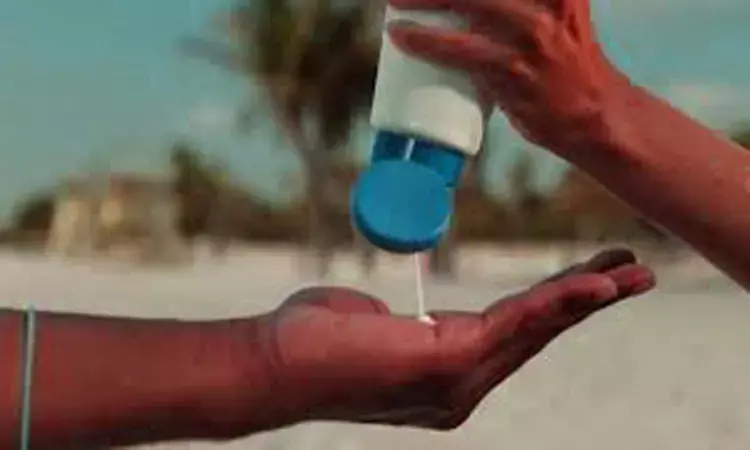- Home
- Medical news & Guidelines
- Anesthesiology
- Cardiology and CTVS
- Critical Care
- Dentistry
- Dermatology
- Diabetes and Endocrinology
- ENT
- Gastroenterology
- Medicine
- Nephrology
- Neurology
- Obstretics-Gynaecology
- Oncology
- Ophthalmology
- Orthopaedics
- Pediatrics-Neonatology
- Psychiatry
- Pulmonology
- Radiology
- Surgery
- Urology
- Laboratory Medicine
- Diet
- Nursing
- Paramedical
- Physiotherapy
- Health news
- Fact Check
- Bone Health Fact Check
- Brain Health Fact Check
- Cancer Related Fact Check
- Child Care Fact Check
- Dental and oral health fact check
- Diabetes and metabolic health fact check
- Diet and Nutrition Fact Check
- Eye and ENT Care Fact Check
- Fitness fact check
- Gut health fact check
- Heart health fact check
- Kidney health fact check
- Medical education fact check
- Men's health fact check
- Respiratory fact check
- Skin and hair care fact check
- Vaccine and Immunization fact check
- Women's health fact check
- AYUSH
- State News
- Andaman and Nicobar Islands
- Andhra Pradesh
- Arunachal Pradesh
- Assam
- Bihar
- Chandigarh
- Chattisgarh
- Dadra and Nagar Haveli
- Daman and Diu
- Delhi
- Goa
- Gujarat
- Haryana
- Himachal Pradesh
- Jammu & Kashmir
- Jharkhand
- Karnataka
- Kerala
- Ladakh
- Lakshadweep
- Madhya Pradesh
- Maharashtra
- Manipur
- Meghalaya
- Mizoram
- Nagaland
- Odisha
- Puducherry
- Punjab
- Rajasthan
- Sikkim
- Tamil Nadu
- Telangana
- Tripura
- Uttar Pradesh
- Uttrakhand
- West Bengal
- Medical Education
- Industry
Ultraviolet exposure not an effective treatment for COVID-19: AAD

ROSEMONT, Ill. - American Academy of Dermatology has released a new statement refuting a speculation that ultraviolet exposure was an effective treatment for COVID-19.
Even though some recent reports have explored that using far UVC, in a wavelength range of 220 to 225, may be less damaging to human tissues these need to be further studied to better determine human health impacts and provide a more complete understanding of how and where this far UVC energy is absorbed by the body.
"There is no evidence to support the recent speculation that traditional ultraviolet exposure is an effective treatment for COVID-19. This misinformation may encourage the public to seek UV radiation from the sun and tanning beds, inherently increasing their risk of skin cancer.
While health issues are complex and involve multiple factors, it is a well-established fact that unprotected exposure to dangerous UV radiation from the sun and/or from an indoor tanning bed is the most preventable risk factor for skin cancer, including the deadliest form, melanoma. Skin cancer is the most common cancer in the United States, affecting one in every five Americans.
We recommend that anyone experiencing symptoms of COVID-19 get tested immediately and follow the instructions of their physician team, and not implement unproven at-home remedies.
And, as we all enjoy the warmer weather and outside exercise while practicing social distancing during these times, the AAD recommends that everyone protect their skin and reduce their risk of skin cancer by following these simple recommendations: seek shade, wear protective clothing, including a lightweight, long-sleeved shirt, lightweight pants, and a wide-brimmed hat and sunglasses with UV protection. Remember to apply a broad-spectrum, water-resistant sunscreen with an SPF of 30 or higher to all skin not covered by clothing and, at all times, avoid tanning beds. If you have questions about how to protect yourself from UV radiation, talk to a board-certified dermatologist."
Hina Zahid Joined Medical Dialogue in 2017 with a passion to work as a Reporter. She coordinates with various national and international journals and association and covers all the stories related to Medical guidelines, Medical Journals, rare medical surgeries as well as all the updates in the medical field. Email: editorial@medicaldialogues.in. Contact no. 011-43720751
Dr Kamal Kant Kohli-MBBS, DTCD- a chest specialist with more than 30 years of practice and a flair for writing clinical articles, Dr Kamal Kant Kohli joined Medical Dialogues as a Chief Editor of Medical News. Besides writing articles, as an editor, he proofreads and verifies all the medical content published on Medical Dialogues including those coming from journals, studies,medical conferences,guidelines etc. Email: drkohli@medicaldialogues.in. Contact no. 011-43720751


